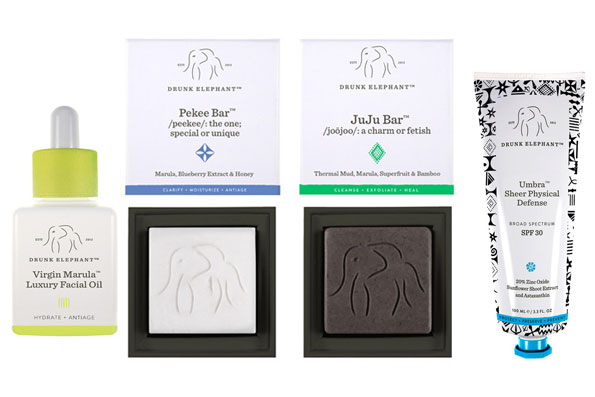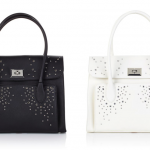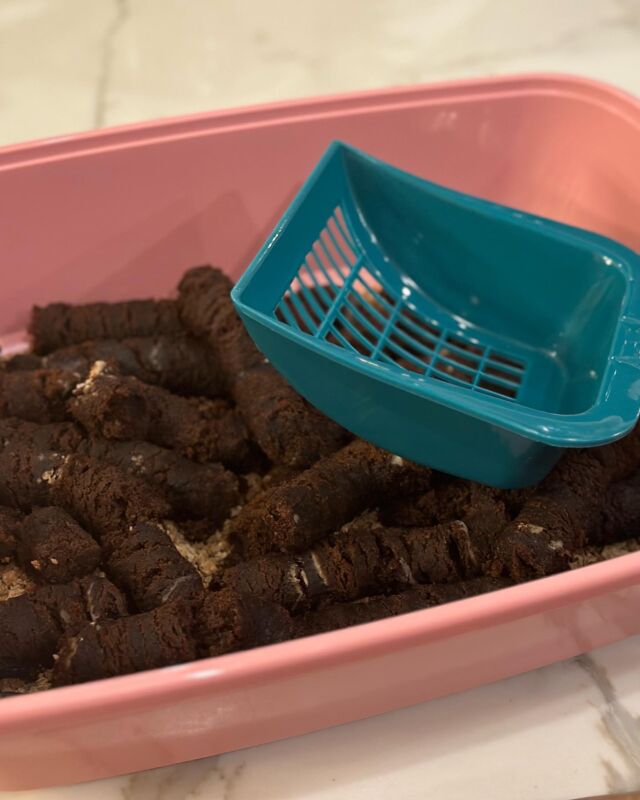There’s so much confusing jargon in the skincare industry that it’s hard to know what’s what, so we turned to Tiffany Masterson, the founder of the new non-toxic line Drunk Elephant, to find out exactly what that differences between non-noxic and all-natural beauty is, what ingredients we should avoid at all costs, and more.
Can you tell us a little bit about your background and what made you start the Drunk Elephant line?
I was a partner in a small company that imported a cleansing bar. Those few years really brought to light my passion for learning about ingredients, what worked, what didn’t and what it would take to have healthy skin. I spent a lot of time talking to customers, dermatologists, beauty editors and industry insiders, and I was able to identify a need. I personally had struggled to find a product that was clinically effective and still felt safe to use. Also, my skin didn’t tolerate fragrance or essential oils well, and I couldn’t find a line that didn’t contain them. After years of bouncing back and forth between the all-natural and clinical categories without success, I realized that to get what I wanted, I would need to develop it myself.
What’s the difference between all-natural, organic and non-toxic (where Drunk Elephant falls into) when it comes to beauty?
“Non-toxic” means that the formulations are made with chemicals that are safe and low-hazard for humans and the environment. We take into consideration a wide variety of potential health risks including carcinogenicity, teratogenicity, allergenicity and neurotoxicity. “All Natural” generally means that the ingredients in a formulation are derived from natural sources without any synthetic compounds. “Organic” ingredients would mean only plant-sourced ingredients grown without the use of pesticides or synthetic chemicals. Both natural and organic ingredients can still be toxic or bad for our skin and neither necessarily means clean, safe or non-irritating. Both terms are incredibly alluring for a customer who cares about safety. I went with non-toxic because I wanted high-performing products that were non-irritating. I choose ingredients without taking into account their synthetic or natural status (not all synthetics are bad!), only looking at hazard and toxicity levels that can be found in both natural and synthetic categories. Of course I was concerned with toxins getting in our blood stream, but I was also concerned about the sensitizers and irritants that can affect our external skin health so I removed them all. I think at the end of the day, there are bad ingredients in every category and likewise, there are great, safe ingredients in every category.
What are ingredients you suggest people avoid at all costs? Why?
There are obvious ones to avoid if possible, and many companies have already removed them…parabens, pthalates, chemical sunscreens, etc. I would say that the ingredient we really avoid at D.E. is natural fragrance or essential oil. There are a jillion names for it too; they sound pretty, they make the product smell sweet and fruity, and supposedly they have benefits when used in skin care. I believe that they are good for aromatherapy purposes, but our skin doesn’t need that. I believe that some can cause sensitivity, inflammation and irritation that is cumulative and imperceptible. Since I have eliminated them from my routine, my redness, oiliness and inflamed, irritable skin is history. For me and my customer, this has been the critical point of difference in our formulations.
Which beauty products are the ones that should definitely be toxic-free?
It’s important to watch out for toxic ingredients when you are applying the product to your skin. Toxic chemicals seep in and get in your blood stream quickly. I will never say this or that ingredient is terrible and is going to kill you. I just say, if there is any doubt, it’s out. There is always a safe alternative.
What do you say to people who break out more when they opt for organic or all-natrual products? And why is that not a large concern with non-toxic?
It could be a concern with any category or type of product, it’s all about the ingredients. A product can only do so much. Habits, genetics, allergies and other things come into play. However, with my line specifically, I’ve gone out of my way to use ingredients that are not known to contribute to breakouts or irritation. If someone has dead skin cell build-up and they are not exfoliating properly, they’re probably going to break out regardless of the brand they are using. Most organic or “all-natural” products on the market contain some form of fragrance or essential oil. The fact that something is all-natural or organic doesn’t mean much. You have to look at each individual ingredient to understand what the breakout risks are. I would say to anyone who breaks out more, pay attention to scents, pH levels and the oils in a product. You want non-comedogenic oils like marula, jojoba, argan, grapeseed, apricot, etc., pH balanced products that won’t strip your skin and ideally ones that don’t contain any fillers, colorants or fragrances, natural or synthetic. Sometimes skin just needs a break. Pay attention to individual ingredients, not buzz words like “all-natural,” “organic,” or even “non-toxic.” Or let D.E. pay attention to them for you.









